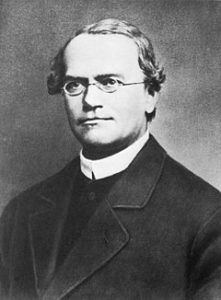My latest "Eureka!" moment while arguing that Charles Darwin's famous theory of common descent with modification is actually a rather pathetic explanation for the modern diversity of life came when I realized that the work of Gregor Mendel had been purloined by evolutionary biologists and made the centerpiece of their argument. Clearly, Mendel's research into genetic recombination demonstrated how descent with modification produced variety in plants, and it stood to reason to assume that the same sort of variety was produced by sexual reproduction by animals. Indeed, anyone brave (or foolish) enough to express skepticism at the idea that Charles Darwin's theory explains the origin of new species had better be prepared for an unprecedented degree of anger, scorn, ridicule, and frequent suggestions to consider remedial biology classes. The question remains: does Mendel's work truly explain the origin of new species, or is that explanation flawed? The idea sounds preposterous on the surface, sort of like the plot of a bad science fiction movie titled Planet of the Furless Apes. Darwin famously scribbled "Monkeys make men" in one of his notebooks to capture the idea that modern evolutionary biologists might call "changes of accumulations in allele frequency changes", which is a fancy way of saying that humans evolved from apes when certain DNA patterns become dominant while others become recessive. Humans lost their fur, grew physically smaller but developed bigger brains, simply because we could. It is theoretically possible, and the only other potential explanation in … [Read more...]
Home of Author and Freelance Writer John Leonard

